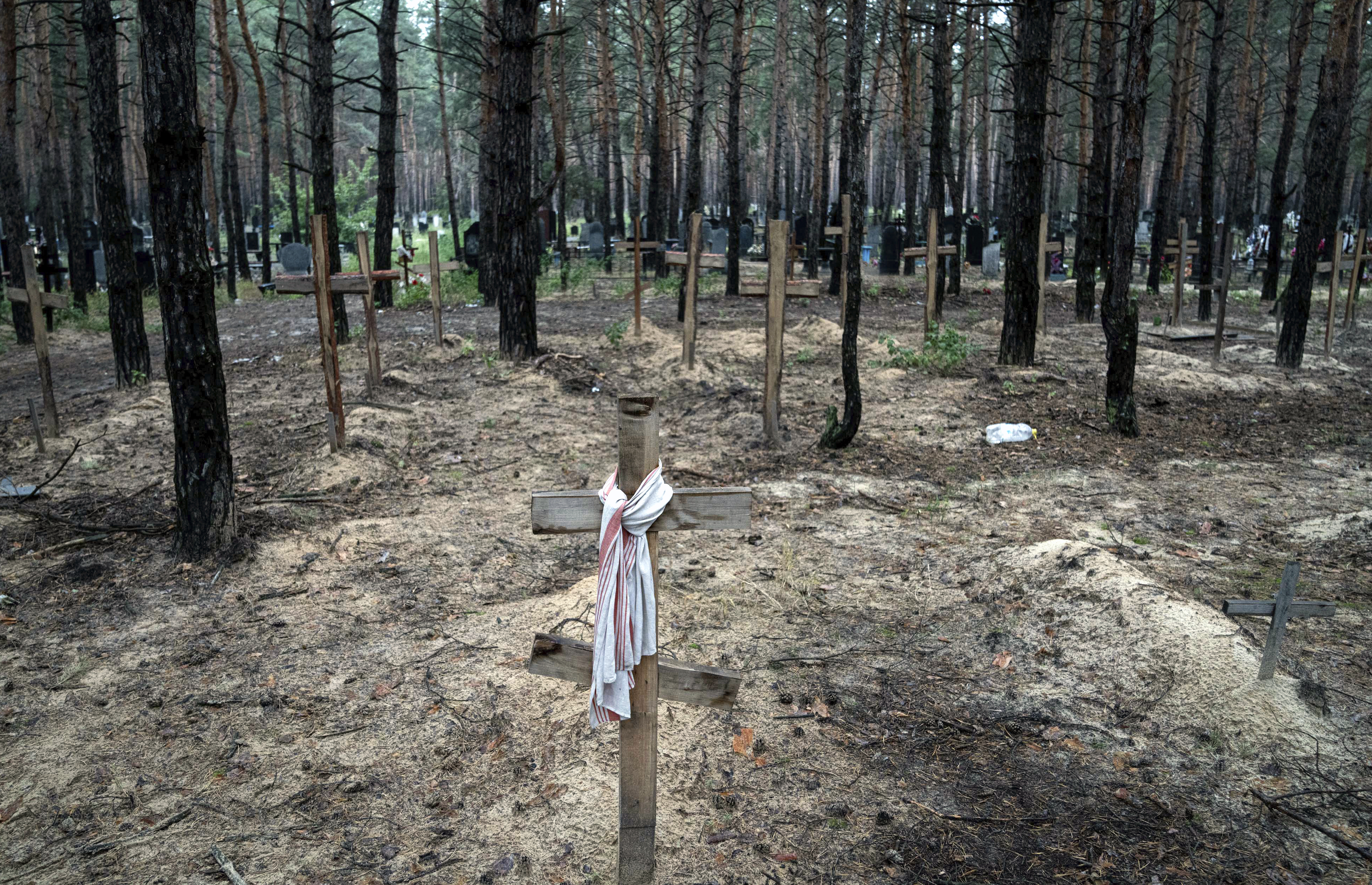Ukrainian authorities discover mass grave with over 400 bodies in city of Izium


A free daily email with the biggest news stories of the day – and the best features from TheWeek.com
You are now subscribed
Your newsletter sign-up was successful
Ukrainian authorities have uncovered a mass grave with over 440 bodies in the eastern city of Izium, Ukraine's Defense Ministry announced Friday, per CNN.
Izium was recently recaptured from Russian forces, after having been "subject to intense ... artillery attacks" in the spring, CNN writes. The city, nestled near the border between the Kharkiv and Donetsk regious, served as an "important hub" for Putin's offensive "during five months of occupation."
Some of the victims in the mass grave were killed by gunfire, while others died of "so-called mine explosion traumas," Serhii Bolvinov, Kharkiv's chief police investigator, told the United Kingdom's Sky News, per CNN. "Some died because of airstrikes," he continued. "Also we have information that a lot of bodies have not been identified yet. So the reasons of death will be established during the investigations." The buried corpses were also "mostly civilians," according to Ukraine's Center for Stategic Communications, and showed some signs of torture, adds The Associated Press.
The Week
Escape your echo chamber. Get the facts behind the news, plus analysis from multiple perspectives.

Sign up for The Week's Free Newsletters
From our morning news briefing to a weekly Good News Newsletter, get the best of The Week delivered directly to your inbox.
From our morning news briefing to a weekly Good News Newsletter, get the best of The Week delivered directly to your inbox.
Per CNN, Bolvinov believes there could be other mass graves in the Kharkiv area.
"Bucha, Mariupol, now, unfortunately, Izium ... Russia leaves death everywhere. And it must be held accountable for it," Ukrainian President Volodymyr Zelensky, alluding to tales of similar civilian tragedies from earlier in the invasion, said in a video address on Thursday. "We want the world to know what is really happening and what the Russian occupation has led to."
A free daily email with the biggest news stories of the day – and the best features from TheWeek.com
Brigid Kennedy worked at The Week from 2021 to 2023 as a staff writer, junior editor and then story editor, with an interest in U.S. politics, the economy and the music industry.
-
 ‘Restaurateurs have become millionaires’
‘Restaurateurs have become millionaires’Instant Opinion Opinion, comment and editorials of the day
-
 Earth is rapidly approaching a ‘hothouse’ trajectory of warming
Earth is rapidly approaching a ‘hothouse’ trajectory of warmingThe explainer It may become impossible to fix
-
 Health insurance: Premiums soar as ACA subsidies end
Health insurance: Premiums soar as ACA subsidies endFeature 1.4 million people have dropped coverage
-
 What would a UK deployment to Ukraine look like?
What would a UK deployment to Ukraine look like?Today's Big Question Security agreement commits British and French forces in event of ceasefire
-
 Would Europe defend Greenland from US aggression?
Would Europe defend Greenland from US aggression?Today’s Big Question ‘Mildness’ of EU pushback against Trump provocation ‘illustrates the bind Europe finds itself in’
-
 Is conscription the answer to Europe’s security woes?
Is conscription the answer to Europe’s security woes?Today's Big Question How best to boost troop numbers to deal with Russian threat is ‘prompting fierce and soul-searching debates’
-
 Trump peace deal: an offer Zelenskyy can’t refuse?
Trump peace deal: an offer Zelenskyy can’t refuse?Today’s Big Question ‘Unpalatable’ US plan may strengthen embattled Ukrainian president at home
-
 The Baltic ‘bog belt’ plan to protect Europe from Russia
The Baltic ‘bog belt’ plan to protect Europe from RussiaUnder the Radar Reviving lost wetland on Nato’s eastern flank would fuse ‘two European priorities that increasingly compete for attention and funding: defence and climate’
-
 How should Nato respond to Putin’s incursions?
How should Nato respond to Putin’s incursions?Today’s big question Russia has breached Nato airspace regularly this month, and nations are primed to respond
-
 What will bring Vladimir Putin to the negotiating table?
What will bring Vladimir Putin to the negotiating table?Today’s Big Question With diplomatic efforts stalling, the US and EU turn again to sanctions as Russian drone strikes on Poland risk dramatically escalating conflict
-
 The mission to demine Ukraine
The mission to demine UkraineThe Explainer An estimated quarter of the nation – an area the size of England – is contaminated with landmines and unexploded shells from the war
